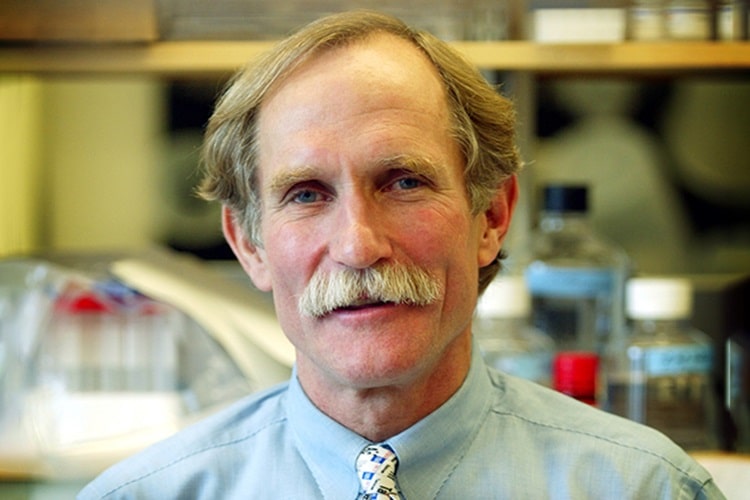Peter Agre was an American biochemist. In 2003, he was awarded the Nobel Prize in Chemistry.
Life and Career
Peter Agre was born on January 30, 1949, in Northfield, Minnesota, U.S. His father was a chemistry professor at Augsburg University, which likely influenced Agre’s interest in science.
He attended Augsburg University in Minneapolis, where he earned his Bachelor of Chemistry degree in 1970. Agre continued his education at the Johns Hopkins University School of Medicine, where he earned his M.D. in 1974.
After completing medical school, Agre pursued a clinical residency in internal medicine at Case Western Reserve University’s Case Medical Center. He later joined the U.S. Public Health Service at the National Institutes of Health (NIH), where he worked in clinical practice and research.
Agre’s groundbreaking work came in the fields of biochemistry and cell biology. He is best known for his discovery of aquaporins, a family of water-channel proteins found in cell membranes.
In 1992, Agre and his research team identified the first aquaporin, later named AQP1, which plays a crucial role in the movement of water across cell membranes. This discovery had significant implications for understanding various physiological processes, including kidney function and the regulation of water balance in the body.
Agre’s career includes academic and research positions at prestigious institutions. He became a faculty member at the Johns Hopkins University School of Medicine in 1984. He held various leadership roles, including Director of the Division of Clinical Immunology and Vice-Chairman of the Department of Medicine at Johns Hopkins.
Agre’s contributions to science were recognized with numerous awards and honors. In 2003, he was awarded the Nobel Prize in Chemistry, which he shared with Roderick MacKinnon, for his discovery of aquaporins.
Award and Legacy
In 2003, he was awarded the Nobel Prize in Chemistry, which he shared with Roderick MacKinnon, for his discovery of aquaporins.
Peter Agre’s legacy is marked by his pioneering contributions to biochemistry, particularly the discovery of aquaporins. His work has opened new avenues for research, has potential applications in medicine, and serves as an inspiration for the scientific community. Additionally, his advocacy efforts contribute to the broader societal understanding of the importance of science and research.

